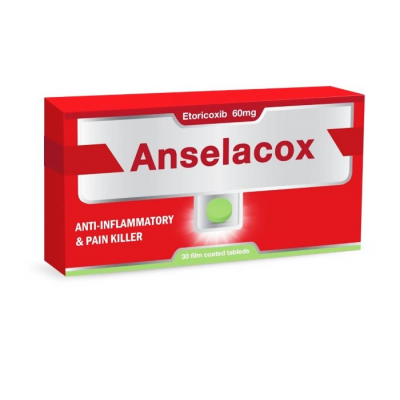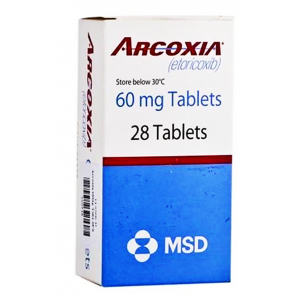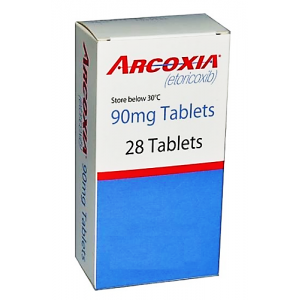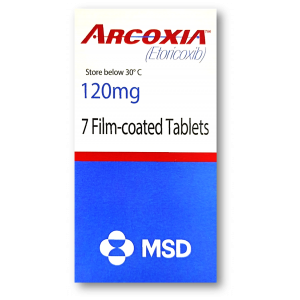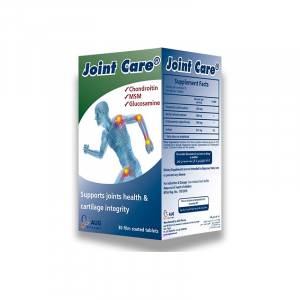- Anti-hestaminic & Respiratory Drugs (18)
- Anti-inflammatory Drugs (173) +-
- Baby & Mom (1275) +-
- Baby & Mom > Bath, skin & Hair > Skin Care > wibes (50)
- Beauty (2557) +-
- Beauty > Skin Care > whitening (261)
- Chemotherapy & Immune Response (476) +-
- Chemotherapy & Immune Response > ANTI-FUNGAL (4)
- Chemotherapy & Immune Response > Chemotherapeutic Agents > Hormone Antagonists >Enzyme Inhibitors (155)
- CIRCULATORY DISTURBANCE AGENTS (19)
- Diet & Fitness Products (218) +-
- DRUG AFFECTING CENTRAL NERVOUS SYSTEM (164)
- Drugs affecting CNS >Anti- epileptic (66)
-
Medical Supplies (470)
+-
- Chemicals & Disinfectants (17)
- Dental Supplies (27)
- Devices & Instruments (8)
- Diabetic Supplies (110)
- General Medical Supplies (21)
- I.V & Medical Solution (0)
- Intensive Care Unit & Anesthesia Supplies (0)
- Kindney Unit Supplies (12)
- Lab Supplies (1)
- Miscellaneous (22)
- Neonatal Unit Supplies (0)
- Operation Room Supplies (3)
- Sanitary (5)
- Sterilization Supplies (0)
- Surgical Sutures (3)
- Syringes (2)
-
Medicines & Health (2412)
+-
- Allergy & Sinus (92)
- Children's Health Care (52)
- Cough, Cold & Flu (282)
- Digestive Health & Nausea (206)
- Ear, Nose & Throat Care (159)
- Eye Care (114)
- Feminine Care (298)
- Foot Care (3)
- Orthopaedic Appliances (0)
- Pain Relief & Management (206)
- Pill Organizer (2)
- Skin Treatments (702)
- Sleep & Snoring Aids (0)
- Support & Braces (6)
- Medicines & health > Gout releif (42)
- Natural & Organic Products (78) +-
- OTC > Analgesics > Anti-inflammatory Drugs (43)
-
Personal Care (2843)
+-
- Bath & Body (214)
- Deodorant & Anti-perspirants (175)
- Ear, Nose & Throat Care (153)
- Eye Care (120)
- Feminine Care (335)
- Foot Care (11)
- Hair Care (374)
- Home Tests & Monitorings (16)
- Incontinence (7)
- Lip Care (19)
- Massage & Relaxation (18)
- Natural & Organic Personal Care (7)
- Oral Care (75)
- Pregnancy & Fertility (56)
- Shaving & Grooming (53)
- Sun Care (52)
- Prescribtion drugs > cardiovascular system > Hypertention drugs (323) +-
-
Prescription Drugs (2834)
+-
- Analgesics (172)
- Cardiovascular System (329)
- Drugs Affecting Musculoskeletal System (59)
- Drugs Used In Infections (49)
- Ear & Nose Drugs (2)
- Endocrine System (155)
- Gastrointestinal Tract (215)
- Gastrointestinal Tract (197)
- GYNECOLOGY (2)
- Miscellaneous (6)
- NEPHROLOGY > URINARY SYSTEM > RENAL DISORDERS > URINARY TRACT DISORDERS (22)
- NEUROLOGY (191)
- Nutrients & Blood Electrolytes (2)
- prescription drugs > cardiovascular system >Anti-hypertensive drugs (72)
- Prescription Drugs > Gastrointestinal Tract > Hepatology > Liver treatment (55)
- Respiratory System (115)
- SKIN > NAILS > HAIR > TOPICAL PREPARATIONS (29)
- Vaccines (1)
- Sexual Wellness (196) +-
- strong anti-emetic & adjuvent used with anti-neoplastic (0)
- Vitamins & Minerals Supplements (1062) +-
Ex Tax: 222EGP
Example
You can return the product within 14 days of purchase.
ReturnsYou can return the product within 14 days of purchase.

Anti-inflammatory painkillers like etoricoxib are also called non-steroidal anti-inflammatory drugs (NSAIDs), or sometimes just 'anti-inflammatories'. Etoricoxib eases pain and swelling (inflammation) in conditions like osteoarthritis, rheumatoid arthritis and ankylosing spondylitis, and it may also be used for short periods of time in gout.
Etoricoxib works by blocking the effect of a natural chemical called cyclo-oxygenase-2 (COX-2) enzyme. This enzyme helps to make other chemicals, called prostaglandins, in the body. Some prostaglandins are produced at sites of injury or damage, and cause pain and inflammation. By blocking the effect of COX-2 enzymes, fewer prostaglandins are produced, which means pain and inflammation are eased.
Before taking etoricoxib:
Some medicines are not suitable for people with certain conditions, and sometimes a medicine can only be used if extra care is taken. For these reasons, before you start taking etoricoxib, it is important that your doctor knows:
- If you have asthma or any other allergic disorder.
- If you think you may be lacking in fluid (dehydrated) - for example, if you have recently had severe diarrhoea or vomiting.
- If you have ever had a stomach or duodenal ulcer, or if you have an inflammatory bowel disorder such as Crohn's disease or ulcerative colitis.
- If you are pregnant, trying for a baby, or breastfeeding.
- If you have any problems with the way your liver works, or if you have any problems with the way your kidneys work.
- If you have a heart condition or a problem with your blood vessels or circulation.
- If you have high blood pressure (hypertension).
- If you have high blood sugar or cholesterol levels.
- If you have any blood clotting problems.
- If you have a connective tissue disorder such as systemic lupus erythematosus. This is an inflammatory condition which is also called lupus or SLE.
- If you are taking any other medicines. This includes any medicines you are taking which are available to buy without a prescription, as well as as herbal and complementary medicines.
- If you have ever had an allergic reaction to any other NSAID (such as aspirin, ibuprofen, diclofenac, and indometacin), or to any other medicine.
How to take etoricoxib:
- Before you start taking etoricoxib, read the manufacturer's printed information leaflet from inside the pack. It will give you more information about the tablets, and it will also provide you with a full list of the side-effects which you could experience from taking them.
- Take etoricoxib once each day, exactly as your doctor tells you to. There are four strengths of tablet available - 30 mg, 60 mg, 90 mg and 120 mg. You will be prescribed the strength of tablet that suits your condition. People with osteoarthritis are usually prescribed 30 mg once-daily, although the dose can be increased to 60 mg if needed. People with rheumatoid arthritis or ankylosing spondylitis are prescribed 60 mg once-daily, although the dose can be increased to 90 mg if it becomes necessary. If you are taking etoricoxib for gout, you will be prescribed a short course of 120 mg strength tablets to take once-daily for up to eight days.
- Swallow the tablet with a drink of water. You can take the tablet either with or without food, although the tablets may work more quickly if they are taken without food.
- Try to take your doses at the same time of day each day as this will help you to remember to take them.
- If you forget to take the tablet at your usual time, take it as soon as you remember. If you do not remember until the following day, leave out the forgotten dose from the previous day and take the dose that is due as normal. Do not take two doses at the same time to make up for a missed dose.
Getting the most from your treatment:
- Your doctor will try to prescribe you the lowest dose for the shortest time to reduce the risk of side-effects. If you need to take etoricoxib for a long time, your doctor may also want to prescribe another medicine for you to take along with etoricoxib to protect your stomach from irritation.
- Try to keep any regular appointments with your doctor. This is so your progress can be checked. Your doctor will want to check your blood pressure from time to time while you are taking etoricoxib.
- If you have asthma, symptoms such as wheeze or breathlessness can be made worse by anti-inflammatories such as etoricoxib. If this happens to you, you should stop taking the tablets and see your doctor as soon as possible.
- There is known to be a small increased risk of heart and blood vessel problems in people taking anti-inflammatory painkillers like etoricoxib. Your doctor will explain this to you and will prescribe the lowest suitable dose for the shortest time in order to reduce the risk. Do not take more than the recommended dose for your condition.
- If you buy any medicines, check with a pharmacist that they are suitable for you to take. This is because you should not take etoricoxib with any other anti-inflammatory painkiller, some of which are available in cold and flu remedies which can be bought 'over the counter'.
- If you are having an operation or dental treatment, tell the person carrying out the treatment which medicines you are taking.
Can etoricoxib cause problems?
Along with their useful effects, most medicines can cause unwanted side-effects although not everyone experiences them. The table below contains some of the more common ones associated with etoricoxib. The best place to find a full list of the side-effects which can be associated with your medicine, is from the manufacturer's printed information leaflet supplied with the medicine. Alternatively, you can find an example of a manufacturer's information leaflet in the reference section below. Speak with your doctor or pharmacist if any of the following continue or become troublesome.
Important: if you experience any of the following less common but possibly serious symptoms, stop taking etoricoxib and contact your doctor for advice straightaway:
- If you have any breathing difficulties such as wheeze or breathlessness.
- If you have any signs of an allergic reaction such as swelling around your mouth or face, or a severe itchy skin rash.
- If you pass blood or black stools, bring up (vomit) blood, or have severe tummy pains.
If you experience any other symptoms which you think may be due to the medicine, speak with your doctor or pharmacist for further advice.
How to store etoricoxib:
- Keep all medicines out of the reach and sight of children.
- Store in a cool, dry place, away from direct heat and light.
Important information about all medicines:
Important information about all medicines
Never take more than the prescribed dose. If you suspect that you or someone else might have taken an overdose of this medicine, go to the accident and emergency department of your local hospital. Take the container with you, even if it is empty.
This medicine is for you. Never give it to other people even if their condition appears to be the same as yours.
Do not keep out-of-date or unwanted medicines. Take them to your local pharmacy which will dispose of them for you.
If you have any questions about this medicine ask your pharmacist.
Write a review
Your Name:Your Review: Note: HTML is not translated!
Rating: Bad Good
Enter the code in the box below:

